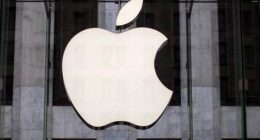From what we’ve witnessed, Facebook is pretty bad at keeping track of numbers. Though the social networking giant has recently issued a cohort of corrections for metric reporting but it is still having issues. It has today announced that yet another miscounting in traffic metrics for publishers using Instant Articles has been discovered.
For those unaware, Instant Articles are synonymous to Google’s AMP pages and enable the company to directly show the article in the News Feed. The content on these websites including Buzzfeed, TechCrunch, BBC News, The Huffington Post and WSJ among others. The content is pre-loaded in the background if you have good internet bandwidth. Publishers can monetize their content by displaying ads to their users via the Audience Network — which is close to maximum load.
Taking to its Metrics info page, Facebook today published an update stating that it has uncovered another issue that displayed skewed traffic count to a ‘small group’ of Instant Article users. This problem stems from the company’s product integration with analytics firm comScore, who is also the one to surface the reports of the said issue.
This issue led to underreported traffic figures for publishers using Instant Articles with the legacy comScore integration. Not everyone using this integration was affected. Instead, it impacted publishers by not displaying the iPhone’s traffic for websites supporting HTTPS protocol. With regard to the same, the statement reads:
This caused an underreporting of iPhone traffic from Facebook in comScore products between Sep 20 to Nov 30, 2016. iPad and Android traffic were not affected.
In addition, WSJ reports that the Instant Articles snafu affected only one percent of the traffic during the aforementioned period. But some big-time publishers had to face a much larger impact and their traffic depreciated by about 10 to 20 percent. And these included Washington Post, BuzzFeed, Mic, Entrepreneur, Foreign Policy, Inverse, PopSugar and Variety to name a few. A website even saw a drop of 30 percent in traffic, mentions one of the sources.
The intermittent problem has now been completely fixed by the company and the same has been detailed in the blog post, which states:
We have fixed the issue and are working with comScore to produce updated estimates for the relevant time periods for the small group of partners affected. We have reached out to affected publishers.
This is, however, not the first time Facebook has reported skewed traffic metrics to its users (advertisers/publishers). Earlier, it erroneously calculated the average duration by dividing the total time spent watching your video by the number of views of your video for three or more seconds — resulting in an infliction for a good two years.





